Legend has it that the colossal ancient statue, the renowned Colossus of Rhodes, once graced this very harbour. However, modern studies have reshaped our understanding, suggesting that the majestic statue may have stood proudly on the eastern promontory of the Mandraki harbour or perhaps even further inland. Regardless, one thing remains clear: it never straddled the entrance of Mandraki harbour, as many once believed.
Though the Colossus has regrettably succumbed to the ravages of time, the port of Mandraki continues to embrace its illustrious past. A tapestry of remarkable historical monuments embraces the harbour, creating an ethereal atmosphere that captivates all who set foot on its hallowed ground.
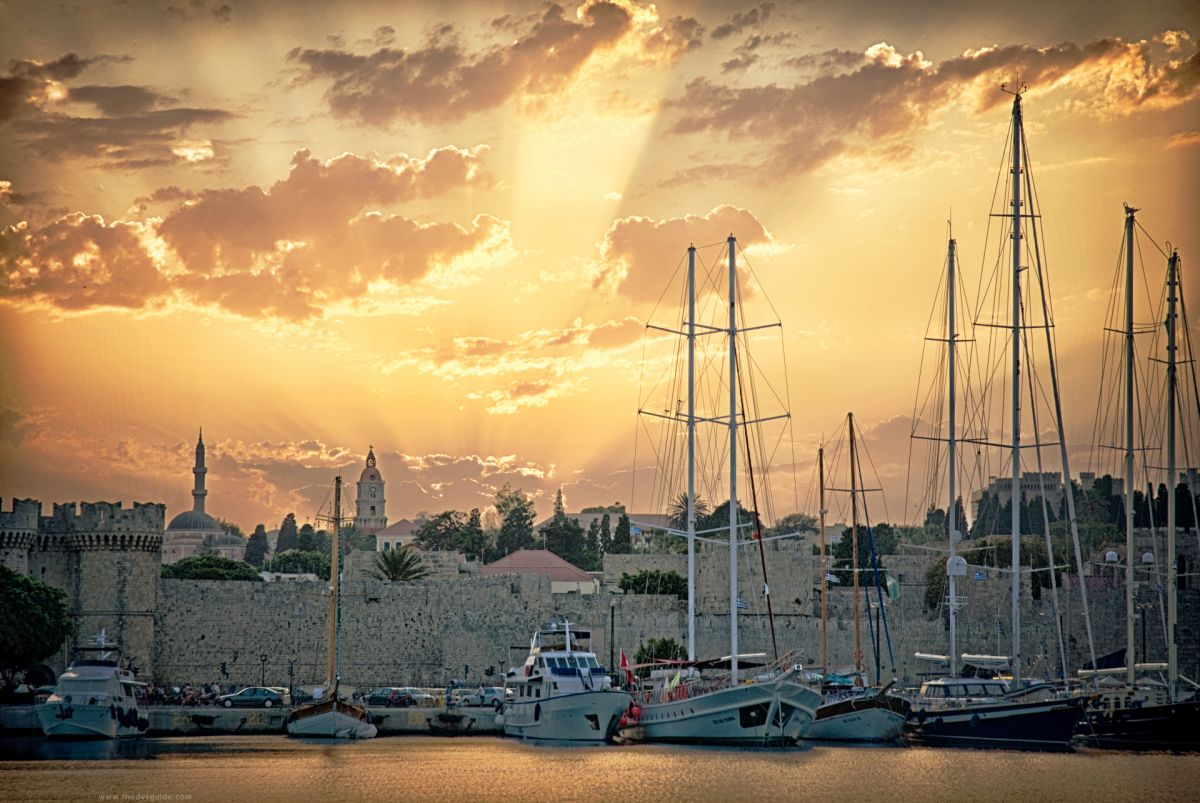
Today, the port of Mandraki stands as a cherished symbol of the island of Rhodes - a testament to the island's rich history and its enduring spirit. It beckons travelers to embark on a journey of exploration and immerse themselves in the timeless beauty that surrounds this fabled harbour.
At the gateway to this ancient port, two bronze figures - the stag, named 'Elefos,' and the doe, 'Elafina' - stand as silent sentinels. Hailing from the Venetian era, they perch atop stone columns, their stately presence welcoming incoming vessels like old friends returning home.
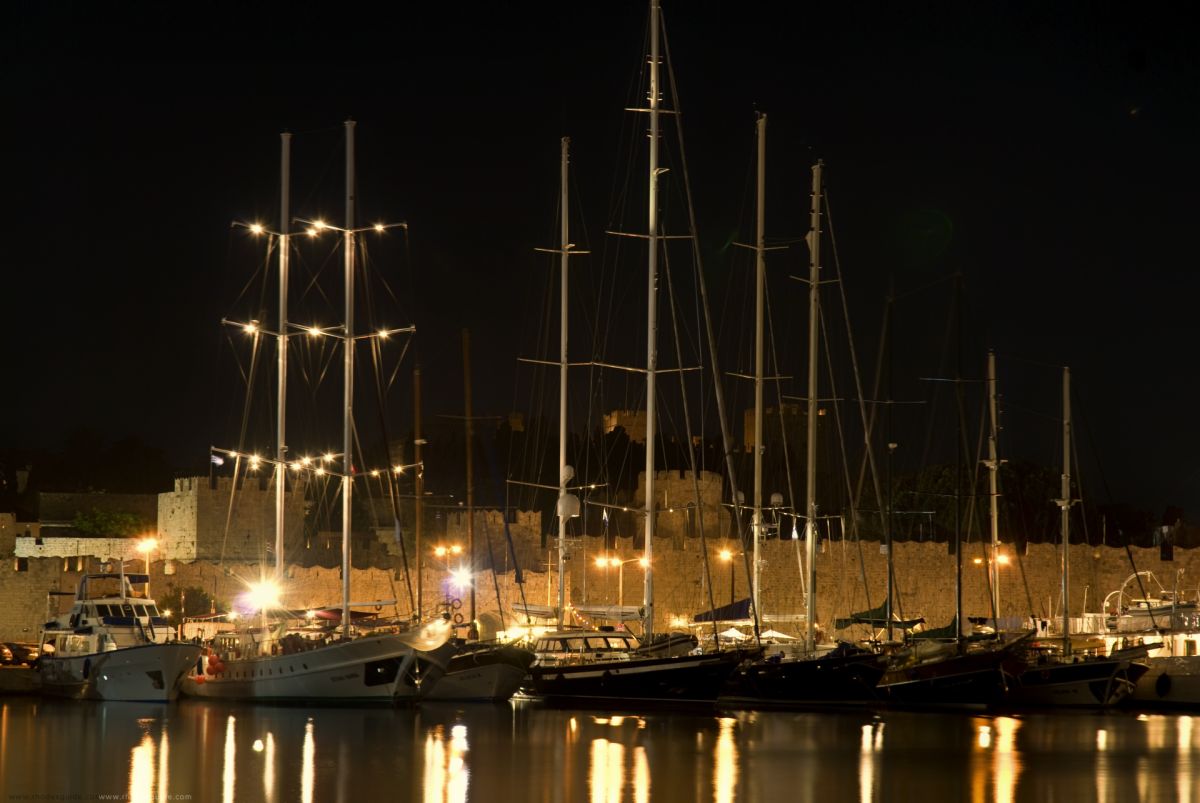
Picture this: Mandraki in all its charming glory, a canvas for small boats and yachts dotting the azure waters. Larger ferries set their course for the nearby new harbour, leaving Mandraki's tranquillity undisturbed. The port, like an open-air museum, is surrounded by fascinating monuments and intriguing edifices, making it a magnet for the footfalls of curious tourists from all corners of the globe.
As you step onto the port, prepare to be greeted by an architectural gem - the Church of the Annunciation, or as it's locally known, Evangelismos Church. Italian architects, drawing inspiration from the medieval Gothic Church of St. John in Rhodes Old Town, birthed this stunning structure back in 1925. Little wonder then, that it's often affectionately referred to as St. John's Church, or, in a more modern moniker, Rhodes Cathedral.
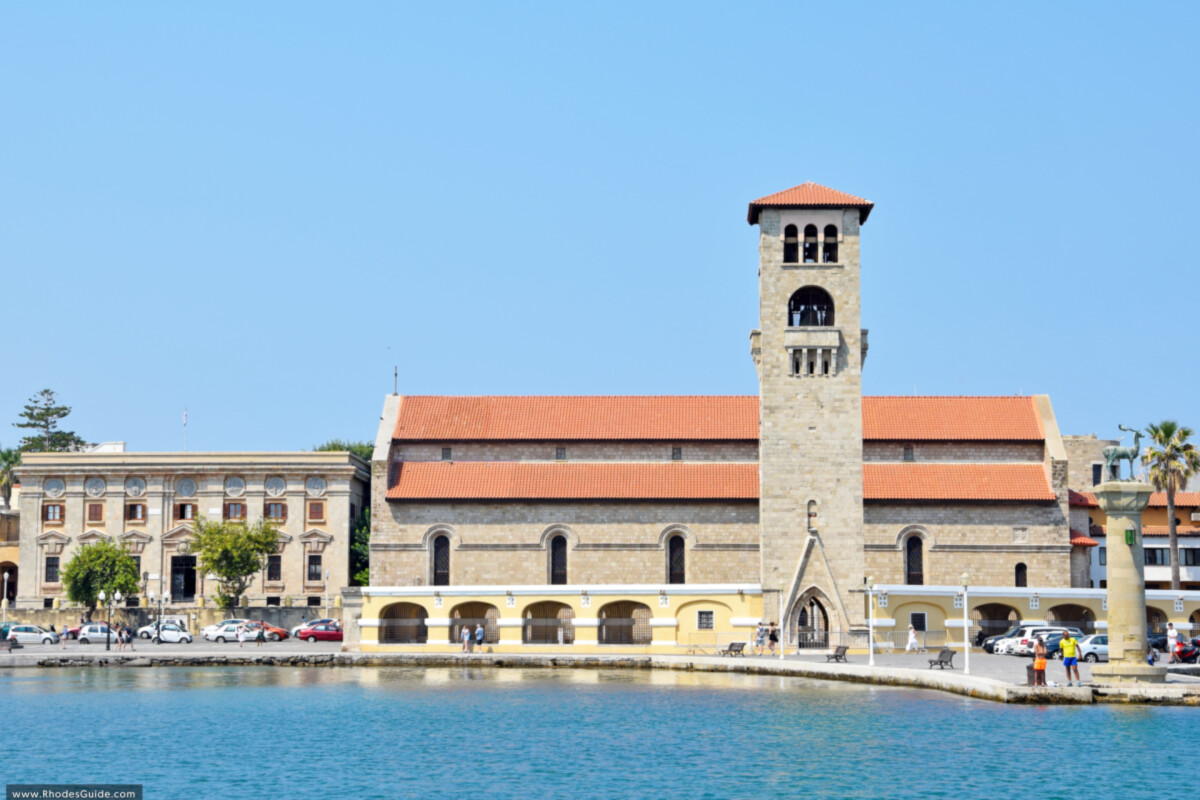
Drink in the mesmerizing sight of its classic Gothic elements - beautifully arched doors and windows, lofty ceilings that seem to touch the sky. As you venture within, be prepared to be captivated by the exquisite frescoes and icons adorning its interior, each a testament to the spiritual devotion and artistic heritage of this enchanting island. Adding to the church's striking silhouette is a towering bell tower, a timekeeper that stands guard by the side entrance, its chimes resonating with the heartbeat of Rhodes.
Now let's take a stroll to the opposite shore of the harbour, where a view from the pages of history awaits us. Nestled here is the 15th-century Fortress of Agios Nikolaos, a sight that'll set your heart aflutter. Named after the island's patron saint, St Nicholas, this massive fortress rose from the humble origins of a small church, transformed into an imposing bastion by the Grand Master of the Knights of St. John. Today, this historic stronghold is adorned with a quaint, white lighthouse, a delicate contrast to its stoic countenance. Sharing this scenic vista are three marvellously preserved medieval windmills perched on the pier adjacent to the fortress. Once, these served as bustling storehouses for grain unloaded from the merchant ships in the harbour. Today, they stand as silent witnesses to the harbour's bustling past, adding a touch of rustic charm to the rugged landscape.
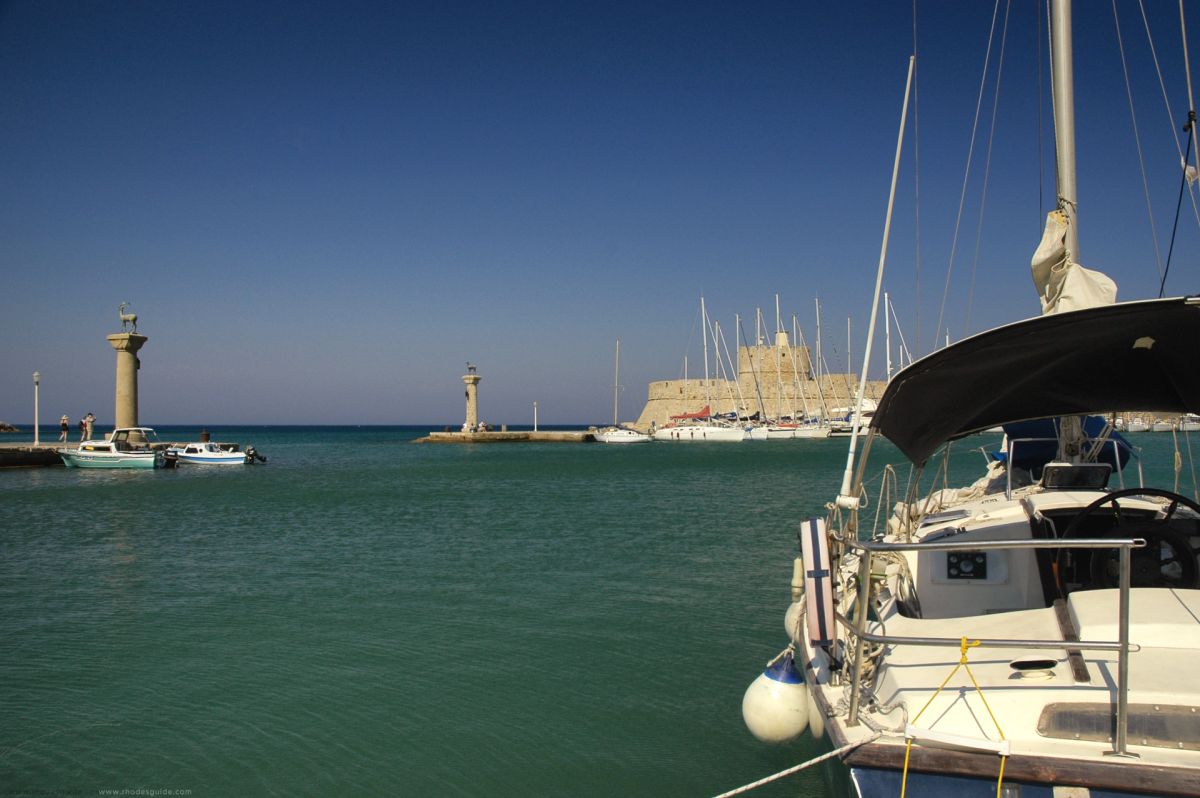
Further embarking on their journey through the captivating harbour of Mandraki, travellers are greeted with a sight that beckons their cameras to capture a moment frozen in time. Casting their gaze across the harbour, a breathtaking panorama unfolds, offering a mesmerising view of the city beyond. Yet, it is not just the scenery that enchants the senses, but the presence of two magnificent architectural gems that elevate the atmosphere to unparalleled heights.
First, the Nea Agora emerges into view, a new market square boasting a picturesque charm that is impossible to resist. Passing through its white gates and beneath its elegant domes, visitors are enveloped in a world of bustling activity. Countless shops and vibrant cafes populate this vibrant space, offering a delightful array of treasures to explore. It's not just trinkets and keepsakes that await discovery; for those with a discerning palate, a delectable selection of fresh fish, succulent meats, aromatic herbs, and more can be savoured in this gastronomic haven.
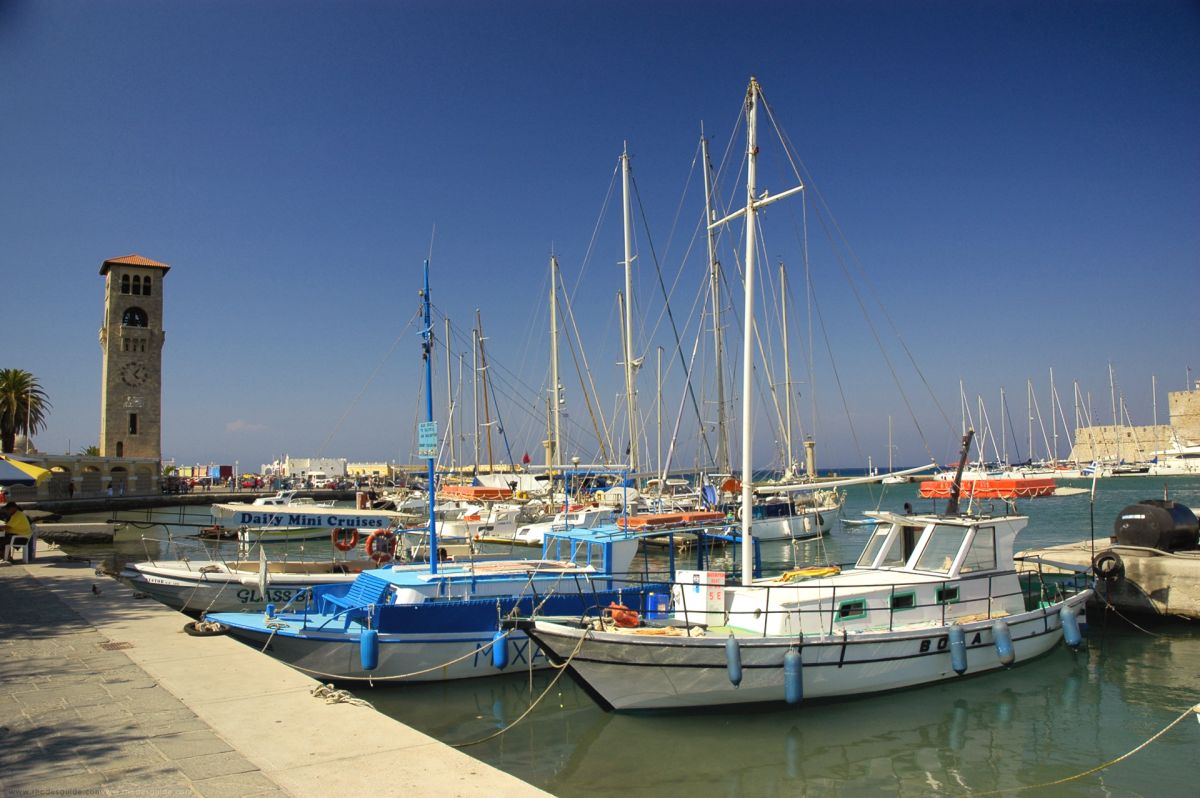
Yet, the Nea Agora is not the sole star of the show. Rising majestically behind it, the Palace of the Grand Masters commands attention with its towering presence. This colossal fortress, a testament to the might of the Johannite order, looms with fortified walls and formidable battlements, standing as a symbol of power and grandeur.
While the marketplace itself was crafted in the 1920s by the Italian rulers who held sway over the island of Rhodes from 1912 to 1947, it bears the indelible imprint of Arabic influence, casting an enchanting spell upon all who wander its vibrant corridors. Its unique fusion of architectural styles creates a captivating ambiance that captivates the imagination.
As for the Palace of the Grand Masters, its history intertwines with that of the Italians, who, in the late 1930s, undertook a meticulous renovation that shaped its current splendour. This awe-inspiring structure stands as a testament to the island's complex heritage, where different epochs converge to create a tapestry of captivating narratives.
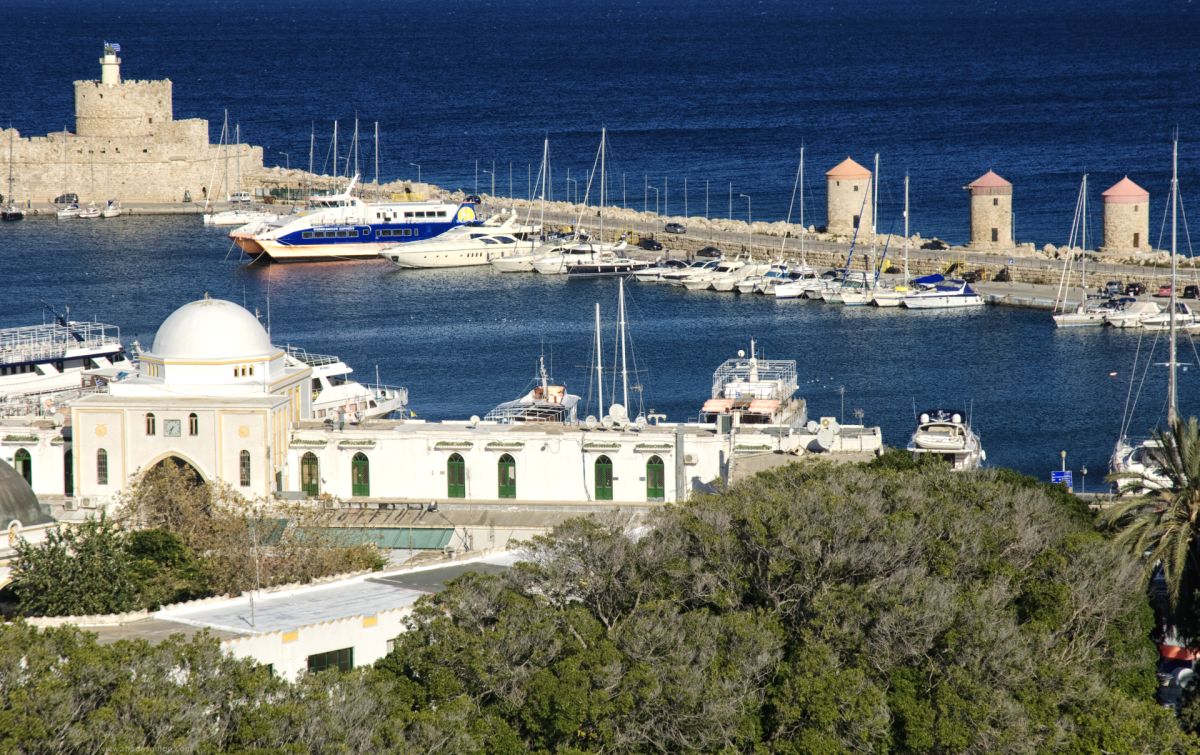
In the embrace of the harbour, where the gentle sea breeze carries echoes of the past, the Nea Agora and the Palace of the Grand Masters stand as guardians of Rhodes' timeless beauty. They inspire wonder, invite exploration, and embody the spirit of an island that has witnessed the ebb and flow of civilizations.


 English
English
 Deutsch
Deutsch
 Ελληνικά
Ελληνικά